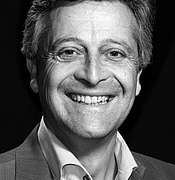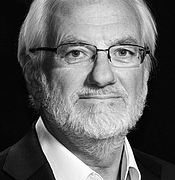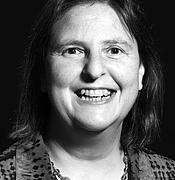- Level Foundation
- Duration 27 hours
- Course by Erasmus University Rotterdam
-
Offered by

About
Welcome to this MOOC on Local Economic Development (LED). Local economic development refers to the processes by which local governments, businesses, and civil society groups get together to raise income sustainably and improve their lives in a well-defined area. It’s about creating jobs, securing livelihoods, improving infrastructure and managing local resources. What do I learn? We will be dealing with questions such as the following. Why does economic development take place in some areas of the world and not in others? Why doesn’t it happen in your place? What prevents people from having the lives they want to live right there? Could your region make more of the opportunities of globalization and new technologies? Did the promises of decentralization in your country fail to deliver better public services and more responsive governments? If these are the questions you are asking yourself, this is the right course for you. It explores the where, who and how of economic development. Please have a look at our list of contents for the coming 8 weeks: 1. What is LED? What drives it? 2. How does globalization shape LED? 3. How does decentralisation affect LED? 4. How does competitiveness affect innovation? 5. What are entrepreneurship and its dimensions? 6. Why are value chains and clusters so important? 7. What are some LED strategies? 8. Your project How will I learn? In each week you will be able to access the content of the videos, suggested readings and additional videos for selective deepening. You will also find assignments that you have to complete if you want to earn a certificate for this MOOC. We will first introduce our “toolkit”, a series of theories and concepts that will help you read the situation in your locality. We will explore the main factors affecting local economic development, such as globalization, decentralisation, and competitiveness. We will discuss key components, like entrepreneurship and innovation and look into the organization of local economies into clusters, value chains and learning regions. We will conclude by deepening on some specific constructs that make local economies grow to benefit their communities. You will also contribute your ideas in the discussion forums, where you will learn from other participants around the world. What makes this course special? There is plenty of information in Internet on local economic development, which is mostly prepared by international donors or multilateral organisations. So what does this course do differently? First of all, the course is offered by academics that have significant published research on local economic development. This course gathers a wealth of academic knowledge that often fights the assumptions on what things are supposed to be like. Second, the instructors of this course have participated in dozens of capacity building projects in Latin America, Asia, Eastern Europe and Africa. Putting learning at the centre, they worked with communities, local governments, international donors and business associations. They often found a significant distance between theory and practice in local economic development, and this has been the basis of learning. Third, the course is acutely aware that each region is different and does not attempt to offer a one-size-fits-all recipe. It singles out key factors that drive local economic development and enables participants to do their own learning process, defining local problems and appropriate solutions. The aim of the course is that participants come up with their own ideas on how to promote local economic development. How will I get a certificate? If you want a certificate for participating in this MOOC, you will need to complete a small assignment each week and participate in the discussion forums. In the end of the MOOC, you will put these contributions together in one final document, your Capstone Project. I hope you find this course exciting and that you get to share our passion for promoting local economic development. Your instructors Dr. Georgina M. Gómez, ISS Prof. Emeritus AHJ (Bert) Helmsing, ISS Dr. Jan Fransen, IHSModules
What is Local Economic Development and why is it important?
1
Discussions
- Introduce yourself
2
Videos
- Defining Local Economic Development (LED)
- Overview of the four drivers in the LED context
Additional Material
1
Readings
- Several suggested readings on LED
Economic globalization and localisation
1
Discussions
- Who is your region connected with?
2
Videos
- Globalisation and Trade
- Globalisation and Restructuring
Additional Material
2
Readings
- History and dynamics of globalization (Video Links)
- The relationship between globalization and LED in developed and developing countries
Trends on Decentralization and Local Government
1
Discussions
- What is your local government doing in relation to LED?
2
Videos
- Trends on Decentralization and Local Government - Part One
- Trends on Decentralization and Local Government - Part Two
Additional Material
2
Readings
- Local economic development in the Developing World: The Experience of South Africa
- LED strategy by the municipality of Lepelle-Nkumpi in the North of South Africa (Optional)
Untitled Lesson
1
Discussions
- Is your region ready to innovate?
3
Videos
- Changing perspectives on Competitiveness
- Innovation
- Frugal Innovation
Additional Material
2
Readings
- Current ideas on regional development and cluster-based economic development (Video)
- Fugal innovation: Centre of Frugal Innovation in Africa (Video)
Entrepreneurship and LED
1
Discussions
- Who are your local entrepreneurs?
4
Videos
- Introduction to Entrepreneurship
- Entrepreneurship Rationalities
- Business Graduation
- Women Entrepreneurs
Additional Materials
1
Readings
- Our research on survival and growth oriented entrepreneurship
Value Chains and Clusters
3
Videos
- Clusters
- Value Chains Introduction
- Learning Regions
Case Study
3
Videos
- Case Study: The Craft Industry of Yogyakarta
- Case Study: Beekeeping in Uganda
- Case Study: Asparagus Farming in Peru
1
Readings
- Assignment: Use a method to analyse an LED strategy
Additional Material
4
Readings
- Clusters and cluster policy: European Cluster Observatory (Video)
- Case reports: Indian Cluster Observatory (Video)
- Flower cluster: The Netherlands (Video)
- Literature review on clusters
Graded Quiz: The Craft Industry of Yogyakarta
1
Assignment
- The Craft Industry of Yogyakarta Quiz
Graded Quiz: Beekeeping in Uganda
1
Assignment
- Beekeeping in Uganda Quiz
Graded Quiz: Asparagus Farming in Peru
1
Assignment
- Asparagus Farming in Peru Quiz
Untitled Lesson
1
Discussions
- Is there any collective action with economic impact in your region?
4
Videos
- Local Economic Development Strategies
- Negotiated Inclusion in Global Value Chains
- Social and Solidarity Economy
- Commons
1
Readings
- Play the Fish Game
Additional material
2
Readings
- Bottom-up organization of the economy (Video)
- Technology and the sharing technology: African Perspective
Congratulations – you are getting to the end
1
Peer Review
- Capstone project: Get all the bricks together to build an analysis of your region.
Auto Summary
This engaging course on Local Economic Development, offered by Coursera, delves into the collaborative efforts of local governments, businesses, and civil society to sustainably raise income and improve livelihoods. Led by Dr. Georgina M. Gómez, Prof. Emeritus AHJ Helmsing, and Dr. Jan Fransen, the 8-week program explores economic growth factors, globalization, decentralization, competitiveness, and entrepreneurship. Learners will engage through videos, readings, assignments, and discussion forums, culminating in a Capstone Project. Ideal for those questioning regional economic disparities and seeking practical solutions, the course offers Starter and Professional subscription options.

Peter Knorringa

Bert Helmsing

Jan Fransen

Georgina Gomez
Salomey Gyamfi Afrifa

